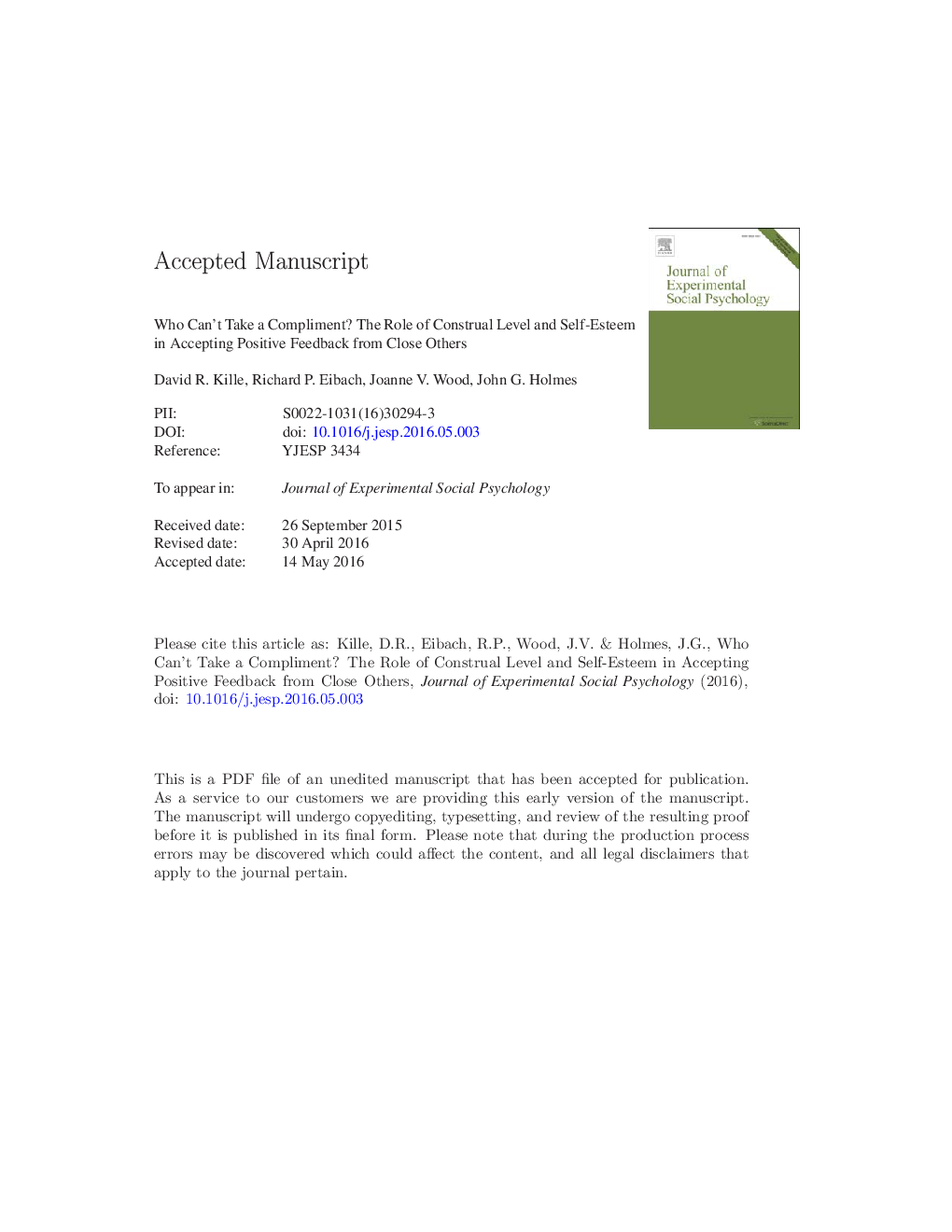| Article ID | Journal | Published Year | Pages | File Type |
|---|---|---|---|---|
| 7324355 | Journal of Experimental Social Psychology | 2017 | 48 Pages |
Abstract
One way that relationship partners express positive regard - a key variable in relationship success - is through compliments. However, some people are unable to perceive positive regard through compliments. We hypothesized that low self-esteem (LSE) individuals' relatively negative self-theories conflict with the positive information conveyed in compliments. Hence, LSEs' self-verification motives (e.g., Swann, 1997, 2012) may lead LSEs to reject the positive implications of compliments. In an initial study, we demonstrated that LSEs (vs. high self-esteem individuals; HSEs) feel greater self-related concerns and negative affect after receiving compliments, which leads them to devalue those compliments. Drawing on theories of mental construal (e.g., Libby, Valenti, Pfent, & Eibach, 2011), we reasoned that the remedy for such self-theory-driven processes is to adopt a concrete (vs. abstract) mindset: LSEs should be less likely to apply their relatively negative self-theories when they process compliments in a concrete mindset. Across three studies, we used diverse methods to induce participants to experience either a concrete or abstract mindset, and asked them to recall (Studies 2 and 3) or imagine (Study 4) a partner's compliment. We then assessed their perceptions of their partners' regard. Results confirmed that the discrepancy in LSEs' and HSEs' perceptions of positive regard following a compliment from their romantic partners was significantly reduced when a concrete mindset was induced compared to when an abstract mindset (or no mindset, Study 4) was induced.
Related Topics
Life Sciences
Neuroscience
Behavioral Neuroscience
Authors
David R. Kille, Richard P. Eibach, Joanne V. Wood, John G. Holmes,
